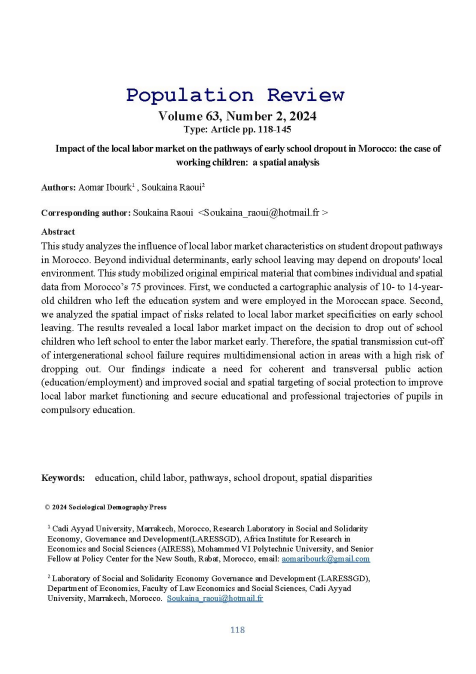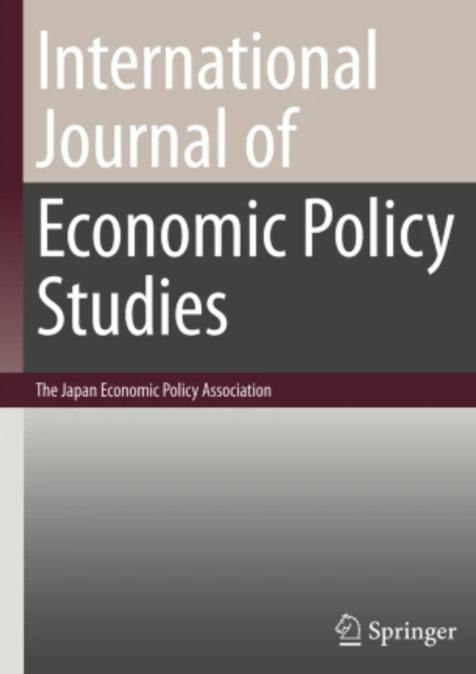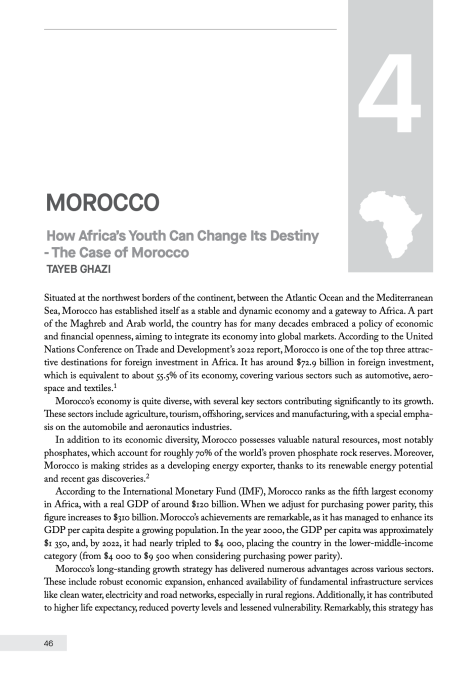Publications /
Paper in Academic Journals
This Paper was originally published on emerald.com
Purpose
Young graduates in Morocco are encountering an increasingly challenging labor market environment. Confronted with intense competition, job insecurity, and unclear career trajectories, many find themselves in low-skilled positions despite possessing relevant qualifications. This issue is particularly pronounced among vocational training graduates, who experience professional downgrading at a rate three times higher (33.6%) compared to their peers from general education (11.6%) (HCP, 2018). Our study aims to investigate professional downgrading among young vocational training graduates in Morocco, focusing on the factors contributing to this phenomenon and identifying potential solutions to address it.
Design/methodology/approach
Our study is based on the insertion and career path survey conducted by the Department of Professional Training with graduates of professional training programs in Morocco. For this edition, the survey was conducted in 2020, encompassing all 31,498 graduates of the 2016 professional training programs. The Heckman self-selection model is employed to analyze and explore various dimensions of downgrading. Factors such as gender, age, marital status, parental education, and the choice of vocational training field are scrutinized to understand their influence on downgrading.
Findings
The study reveals several key findings: Women exhibit a lower probability of professional downgrading compared to men. Young graduates are more vulnerable to downgrading, emphasizing the necessity for career guidance and mentorship programs to facilitate their entry into the job market. Marital status plays a role, with married individuals having a higher likelihood of downgrading. Parental education, particularly that of mothers, proves critical in preventing subjective downgrading of vocational training graduates, highlighting the need for adult literacy and education programs. The effectiveness of the National Agency for the Promotion of Employment and Competencies (ANAPEC) programs in preventing downgrading among vocational training graduates is questioned, suggesting the need for program revisions tailored to this population. The choice of vocational training field significantly impacts downgrading, with graduates of technical training programs experiencing advantages. This emphasizes the importance of diversifying training fields and aligning them with market demands.
Originality/value
This study provides valuable insights into the phenomenon of professional downgrading among young vocational training graduates in Morocco. The findings emphasize the need for targeted policy interventions. Recommendations include supporting young graduates, reassessing programs offered by the ANAPEC, and enhancing technical training to better align with the evolving demands of the labor market.











